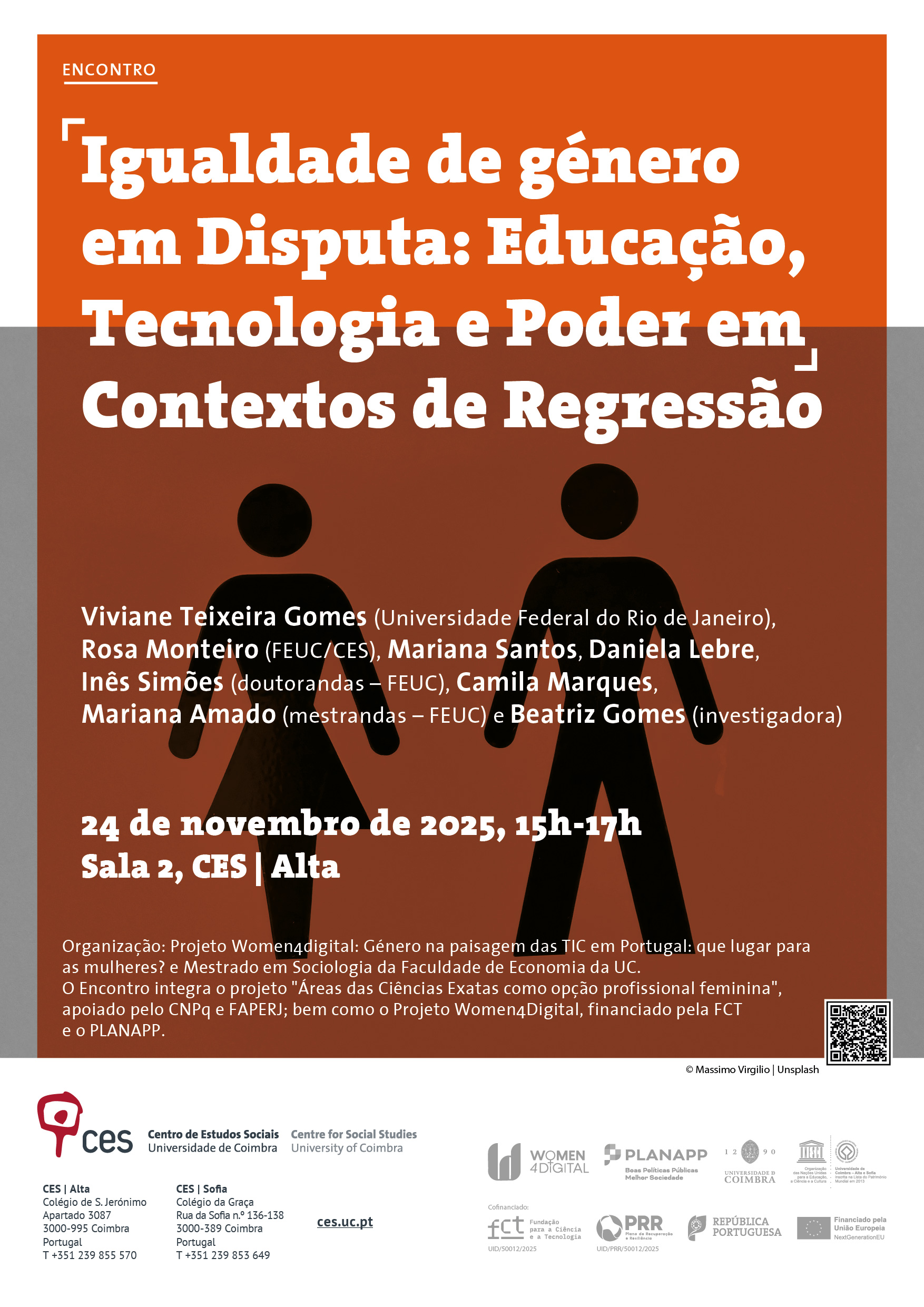Encontro
Igualdade de género em Disputa: Educação, Tecnologia e Poder em Contextos de Regressão
24 de novembro de 2025, 15h00-17h00
Sala 2, CES | Alta
No Brasil e em Portugal, a igualdade de género nas áreas de Ciência, Tecnologia, Engenharia e Matemática (CTEM) tem sido objeto de políticas públicas e de ações em educação que visam diminuir o gender gap nessas profissões. Porém, os resultados ainda demonstram poucas mudanças substanciais, principalmente nas áreas da Computação e da Inteligência Artificial. Propomos, então, refletir sobre os fatores limitantes dos resultados das intervenções nesse cenário, num quadro mais amplo das políticas públicas de igualdade, abordagens e resistências.
Consideramos como contexto da nossa análise o avanço das agendas conservadoras, antigénero, através de estratégias diversas, entre elas a apropriação de temas caros aos movimentos progressistas, como a igualdade de género e a educação. Quando esses dois campos se interseccionam, o antifeminismo vale-se de valores morais e religiosos para deslocar a discussão sobre sua importância para a esfera privada. Valendo-se do discurso sobre a autonomia das famílias, confina a discussão sobre a sexualidade ao espaço privado e nega a manutenção de desigualdades historicamente perpetradas contra as mulheres no acesso e permanência na educação e, consequentemente, no trabalho. Enquanto isso, a violência de género avoluma-se e são persistentes as desigualdades nas escolhas e trajetórias profissionais das mulheres.
Dessa forma, a fim de aliar os cenários de Portugal e do Brasil, lançamos as seguintes questões como base para nosso debate: Quais foram os enquadramentos dados à desigualdade de género em CTEM pelas políticas públicas em educação? Como os movimentos conservadores tem limitado o alcance das políticas de igualdade? Quais são os vieses de género presentes na educação básica e superior a serem enfrentados? Como as ações tem influenciado as práticas pedagógicas de modo que se tornem sensíveis ao gênero?
Esta sessão realiza-se no âmbito do pós-doutoramento de Viviane Gomes Teixeira no CES, inserida nas atividades do Grupo informal de Estudos das Mulheres e de Género, no âmbito do projeto Women4Digital, coordenado por Rosa Monteiro, no CES e contará com várias apresentações de trabalhos, dedicadas aos temas da política, poder, tecnologia e educação, construindo um diálogo Portugal-Brasil. O objetivo é promover uma reflexão conjunta e um balanço dos principais estudos e investigações desenvolvidos ao longo do último ano no âmbito destes temas, no Mestrado em Sociologia da FEUC, e que contribuem para a reflexão levada a cabo no projeto.
O Encontro integra o projeto "Áreas das Ciências Exatas como opção profissional feminina", apoiado pelo CNPq e FAPERJ; bem como o Projeto Women4Digital, financiado pela FCT e o PLANAPP.
Organização: Projeto Women4digital: Género na paisagem das TIC em Portugal: que lugar para as mulheres? e Mestrado em Sociologia da Faculdade de Economia da UC


